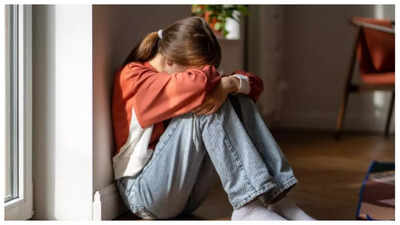Depression is a mental disorder that is felt as a persistent sadness and loss of interest in activity. It’s more than just feel down or random “sad day”; This is a serious condition that can significantly affect everyday life. Most people believe that only adults suffer from this condition, but studies show that a sharp percentage of students is depressed, and some studies believe that the performance is up to 58.4%. However, the detection of depression in children can be difficult, as their symptoms may differ from adults. Let’s delve into …
Depression in children
Depression in children, like adults, is far from “I have a bad day” and causes persistent sadness or irritability that lasts for weeks or more. It affects how children think, feel and behave. Unlike ordinary mood swings (in school issues or home) or temporary sadness, depression interferes with the daily activity of the child, school, friendship and family life. It can also cause physical symptoms such as headaches or stomach pain for no exact cause.

Signs of depression in children
In children, depression may appear in a different way. See how
Emotional changes
Permanent sadness or irritability: Your child may seem unhappy and angry all the time.Loss of interest: They can stop enjoying the classes (which they loved before) hobbies or spending time with friends and family.Low self-esteem: children can say things such as “yo-naught” or “no one”.Aggression: Younger children can become more annoying or have frequent explosions.Guilt: Your child can blame yourself for things or feel hopeless.Speaking of death or self -inflicted: this is a serious sign that requires immediate attention.
Physical symptoms
Changes in sleep models: Too much sleep or sleep problems.Changes in appetite or weight: Eating is much more or less than usual.Headaches or stomach pain: often without medical reason.Lack of energy or fatigue: Your child may seem tired or “burned” all the time.
Social changes
The complexity of concentration or decision -making: it can affect the school’s productivity and even regular home.Conclusion from friends or family: Your child may isolate yourself or avoid social activity.Reduction of school classes: loss of interest in school work or sports. that leads to bad varieties.Risky behavior in older children: such as a substance abuse or escape.
Why early detection is key
The longer the depression is not treated, the more it can affect the development of the child, relationships and overall health. Early recognition and treatment can prevent worsening problems and help children feel better and better. Depression can sometimes lead to suicide thoughts, so it is important to take warning signs seriously.

What should parents do
Agree
Start talking carefully with your baby about how they feel. Give them a safe space, and let them know what to share your feelings well and what you are there to listen. Avoid charges or minimizing your emotions. Sometimes it is difficult for children to convey feelings in words, so be patient and supported.
Watch their behavior
Notice any changes you see in the mood, behavior, sleep, appetite or school. This information will be useful if you talk to medical workers.
Contact your help professionally
If the symptoms last more than two weeks or deteriorate, talk to your child’s doctor or mental health specialist. Although you can want the best for your child, you don’t have qualifications to help him. The therapist can evaluate your baby, diagnose and recommend treatment options such as therapy or medication if necessary.
Encourage healthy habits
Support your child in maintaining a regular sleep with sufficient sleep, healthy food, physical activity and sometimes for pleasure and rest. These habits can improve mood and energy.
Keep track of suicide warning
If your child talks about death, self -propagation or shows risky behavior, consult a doctor or mental health specialist. Do not leave your baby alone if you are afraid that they can harm themselves.
Sources:
Kidshealth – Depression as a child: what parents should know Cleveland Clinic – Depression in Children: Causes, Symptoms and Treatment NHS – Depression in Children and Youth Medicine John Hopkins – Depression in Teens and Children











